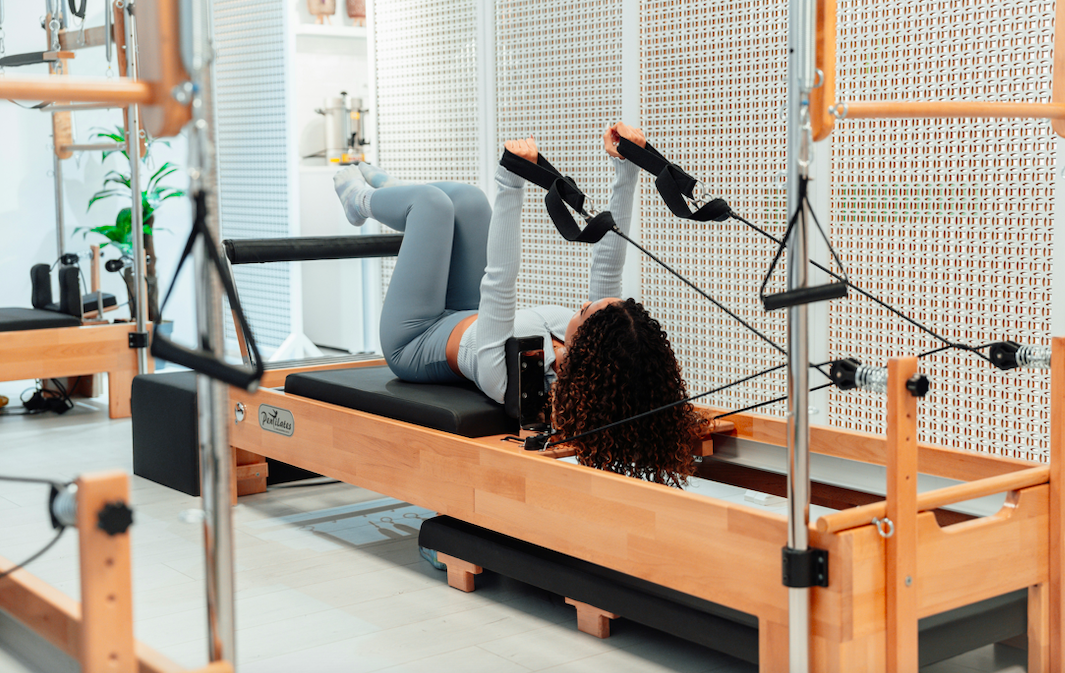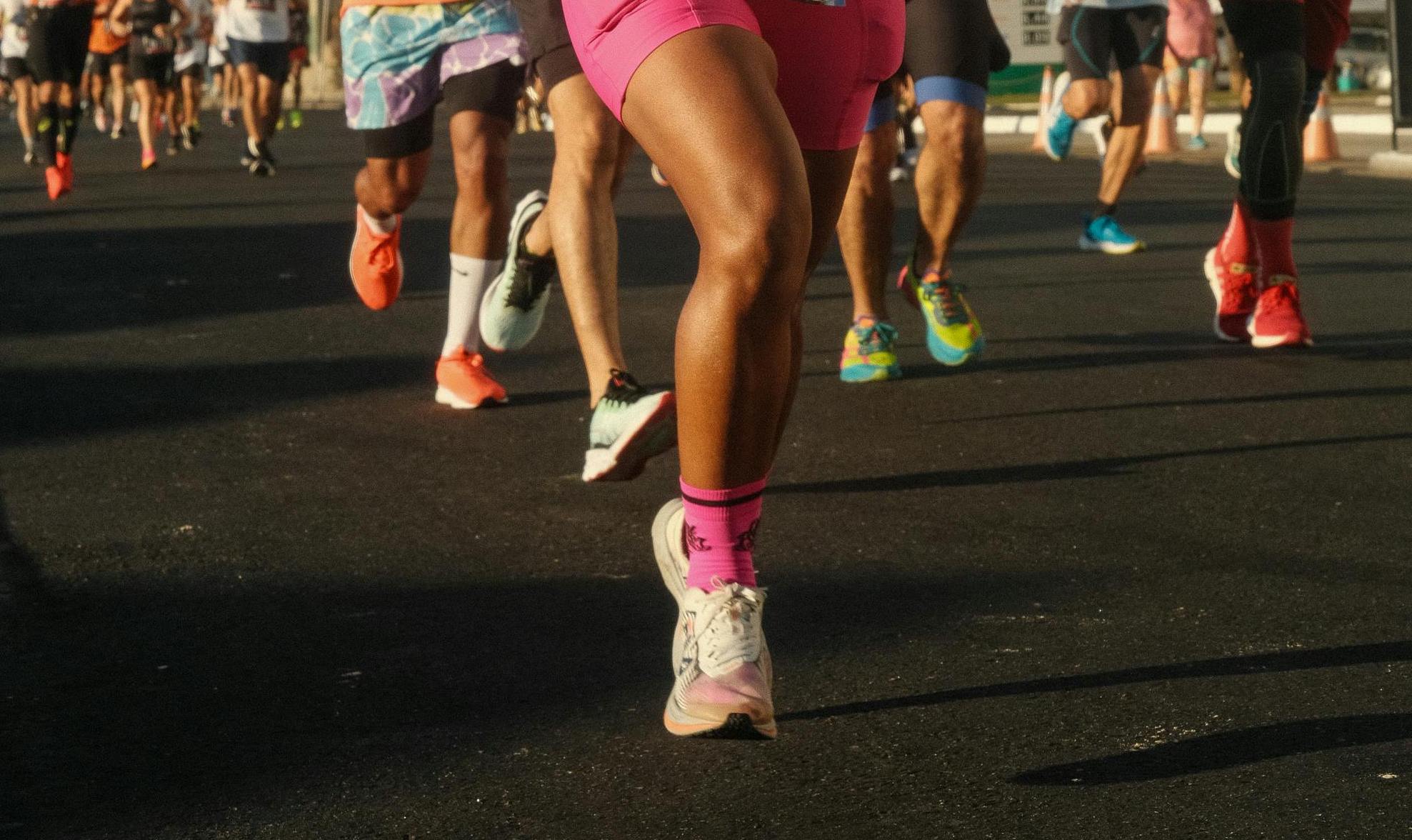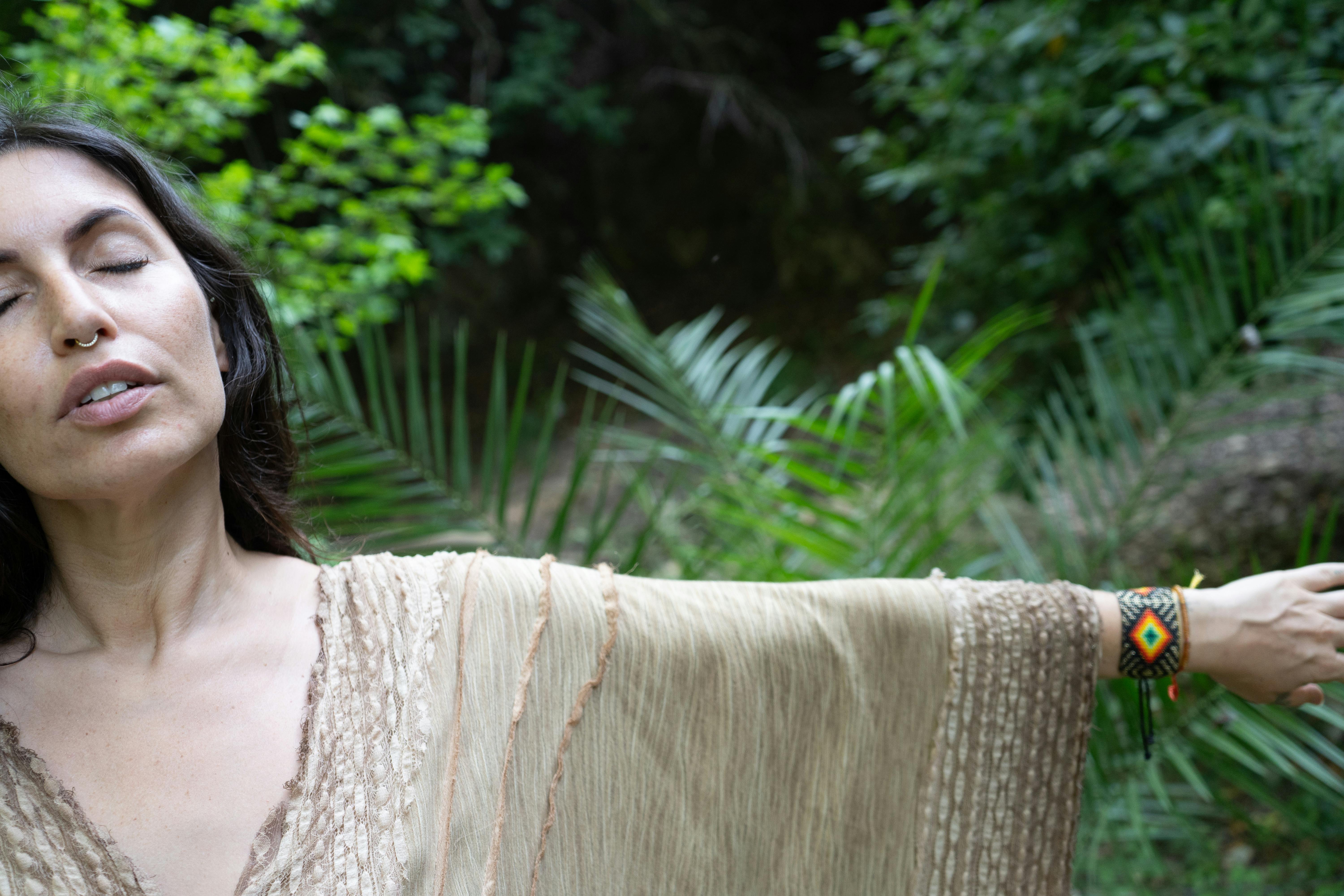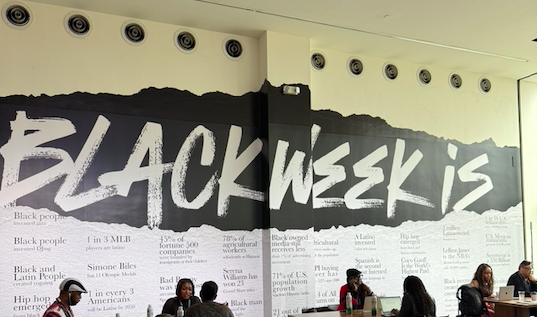
Op-Ed: Controversial Discourse about "Luxury" Sparks Necessary Education on Origins of Pilates
@PilatesBodyRaven’s TikTok controversy caused a firestorm of backlash

Published by Cameron, Founder of Thrivency
All heated conversations seem to start the same way these days: a controversial take on TikTok. However, the subject of this backlash may have come as a surprise to anyone who is even acutely aware of Pilates’ recent meteoric rise in popularity.
Raven Ross, or @pilatesbodyraven across her social media channels, became a highly sought-after Black, female Pilates instructor in recent years. Following her enhanced visibility from participating in season 3 of Love is Blind, Raven built a Pilates empire that has blossomed into a virtual studio, online classes, in-person experiences, and her very own app. It seemed that she was perfectly positioned to ride this wave of Pilates mania, especially with its growth among the Black, female demographic. That is, until she voiced her opinion about a controversial discourse that’s been swirling around this form of exercise.
@PilatesBodyRaven’s Controversial TikTok Take
On September 11, 2025, she shared a now-deleted TikTok video, in which she addressed common criticisms about exclusivity, lack of diversity, and the high cost of Reformer classes. Ross started off her video acknowledging the disparity, sharing that the “entire purpose of her business is about providing accessible and affordable Pilates to a diverse demographic of women.” But then she went on to say that she wants people to think about Pilates the same way they would think about a luxury designer product. She added, “you would never walk into Bottega and say ‘Where’s the diversity?’ 'Where's the accessibility?” This central argument seemed to contradict her original point.
This is a screen recording of Raven’s original video, reposted by another TikTok user
She referenced the long legacy of Pilates, and the common requirement for certified instructors to train for at least 500 hours. Despite her attempt to justify the high prices and exclusivity of the exercise, her contribution to the discourse quickly escalated into a firestorm of opinions that her comments were “tone deaf” and even “anti-Black.” Just search “pilates by Raven” on TikTok to browse hundreds of video reactions ranging from fierce displeasure to outright comical.
Another point of angst caused by Raven’s take is the false equivalency of criticisms about lack of diversity and the need for Pilates to be cheap. As some users pointed out, they’re willing to pay the price for high-quality and individualized workout classes, but they’re tired of being the only Black woman or woman of color in the room.
The Origins of Inclusivity within Pilates
Perhaps the most interesting part of this latest social media scandal was the call to examine the historical origins of Pilates, one that I wasn’t too familiar with myself. According to Pilates.com, Joseph Hubertus Pilates originated early forms of modern-day Pilates movements while he was held in an internment camp in England during World War I for being considered a German “enemy alien.” His exercise methods helped his fellow internees stay active and even recover from ailments. By the 1920s, he emigrated to the United States and eventually went on to refine the Pilates method, opening a New York City-based fitness studio that became popular among young ballerinas.
Bringing this back to the discourse on diversity, many social media users have referenced the lesser-known legacy of those who were believed to be the only Pilates practitioners ever officially certified by Joe. Kathy Grant and Lolita San Miguel, a Black and Latina woman, studied under Joseph Pilates and were awarded degrees by the State University of New York to teach Pilates just before his death in 1967.
It’s impossible to know what Joseph Pilates would think of the modern-day culture of Pilates. Perhaps the exercise’s closely-linked history with ballet explains its diversity problem. Ballet has always faced criticisms for its European aesthetic ideals and economic barriers to training. But it's worth noting that his intentional collaboration with Black & Brown women like Kathy Grant and Lolita San Miguel during the 1960s may offer a clue about his potential open-mindedness.
The Ongoing Need for Inclusive Wellness Spaces
Raven Ross may have been the latest, but she likely won’t be the last content creator to share a viral video on this topic. The swift and mighty backlash indicates persisting frustrations for any Black person or person of color seeking inclusive wellness spaces. We must uncouple Pilates from its association with any one race. And to go even further, we should push to uncouple “luxury" with any one form of exercise. That line of thinking reinforces the harmful standard that wellness is reserved for certain identities or communities of a certain socioeconomic status. I posted my own video in response to this firestorm, sharing low or no-cost alternatives to traditional Reformer Pilates classes.
I maintain that nobody “owns” Pilates, and that many forms of movement are yours individually to adopt and adapt in a way that makes sense for your life. I hope that Raven uses this opportunity to reflect on what her core mission truly is, because at the end of the day we do need Black women like her staying true to the commitment of accessibility.
.png)




